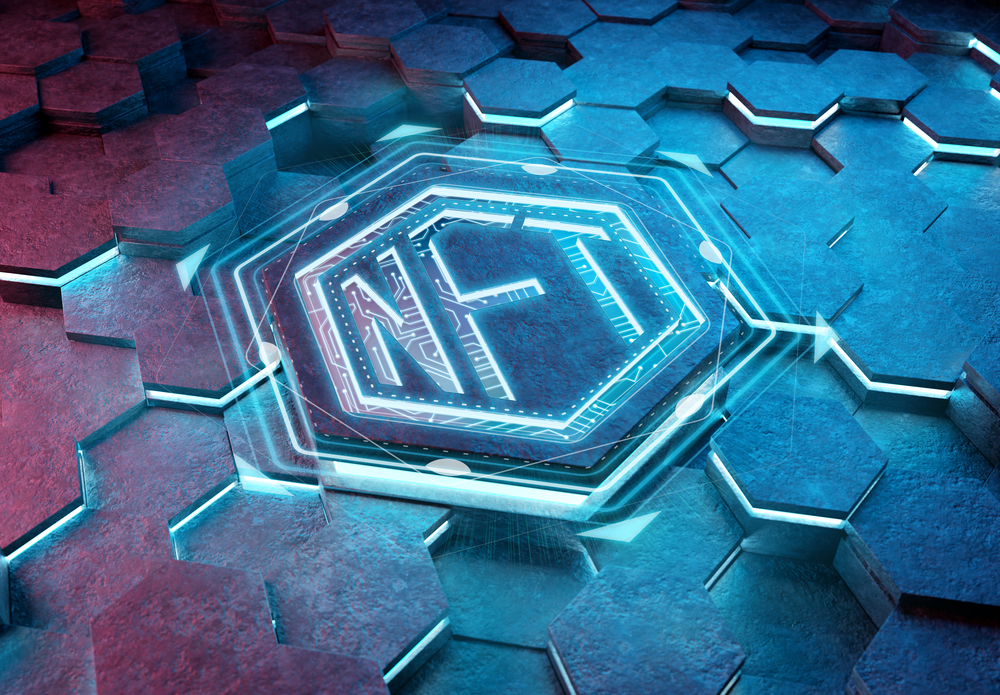Non-fungible tokens have created a unique and irreplaceable way of owning digital assets. In addition, they have made it easy for artists to earn millions of dollars from their pieces of work, from music to art and other collectibles. The race to tokenize real-world objects is all but heating up as people look to enhance ownership of their most prized asset and generate maximum returns.
Amid the increased NFT uptake, the total sales volume has been rising, with more than $17 billion of tokenized assets going on sale last year. With the marketplace expanding by the day, people are increasingly looking for ways to mint and sell whatever has the potential to elicit strong demand in the market.
Contrary to perception, the process of coming up with non-fungible tokens is straightforward. Multiple marketplaces allow people to list generated NFTs for the public to place bids.
The process of coming up with NFTs is almost the same in all the marketplaces.
Sign up for a crypto exchange account
While looking to mint an NFT, having some cryptocurrencies is essential. The crypto tokens, mostly Ether, are to be used to pay for fees in the minting process.
Therefore, signing up for a crypto exchange account is essential as it is from here you will purchase the much-needed virtual currencies. Some of the best exchanges for buying cryptocurrencies include Coinbase and Binance.
Get a crypto wallet
After signing up for a crypto exchange account, getting a crypto wallet is also important. A crypto wallet offers safe storage of all the tokens purchased from the crypto exchange. In addition, a crypto wallet acts as a bank account for storing any tokens one gets paid for selling an NFT.
The most commonly used crypto wallets in creating NFTs are browser plugins such as Metamask. Some other non-custodial wallets that one can consider are Coinbase Wallet and Rainbow. Setting up a Metamask is easy as one only needs to visit its official website and install the chrome extension. Once in, simply click the “Create a Wallet” button and follow the instruction until it prompts you to create an Ether password.
Metamask stands out partly because it allows people to buy Ether directly without having to check into a crypto exchange. However, it is important to note that purchasing crypto this way can be expensive.
Purchase some Ether and send it to a crypto wallet
With crypto exchange and wallet in place, the next step to mining NFTs entails purchasing some cryptocurrencies. Given that most marketplaces that support the NFTs are on the Ethereum network, it is important to purchase some Ether.
Once a purchase is made on the exchange, the tokens must be sent to a wallet for safe storage and connecting to an NFT marketplace. To move any Ether from the exchange to the wallet, you must have the wallet address, which is simply an account number for sending and receiving crypto.
The Metamask wallet has a function that allows easy copying of the wallet address. By entering the address, you will send the Ethereum’s bought from the exchange to the wallet. Once everything is complete, you will see the updated balance in the Metamask wallet.
The cost of creating an NFT fluctuates considerably depending on the demand for creating transactions on the blockchain. The cost can range from $70.
Create an NFT marketplace account
The process takes place in NFT marketplaces. Thus, it is important to open an account with one of the reputable accounts, i.e., Rarible or OpenSea. Upon opening an account, it is important to connect the wallet with the marketplace to go to the profile portal.
OpenSea stands out partly because it does not require people to pay minting fees every time they create an NFT. The marketplace has a ‘lazy mint’ option that allows people to upload and mint NFTs without paying fees. Whenever the NFT is listed for sale, the buyers are the ones who will pay for the gas fees.
Connecting a wallet to an NFT marketplace makes it easy to transfer some Ether tokens during the minting process to pay for any gas fees.
Minting an NFT
There is a ‘create’ button somewhere at the top in almost all the NFT minting marketplaces. By clicking the button, one gets to kick start the process of minting an NFT of a music file, art, or even image. Upon clicking ‘create,’ one would be prompted to upload a file of the real-world object that needs to be tokenized.
In OpenSea, you will have to add a collection name description and logo on uploading the field before the minting process starts.
After uploading the file, simply scroll down and click on the ‘create’ button. The marketplace, be it OpenSea or Rarible, will start the process of tokenizing the uploaded digital file to come up with an NFT. Once the NFT is minted, it will appear on the profile.
Things to consider before minting NFT
While the process can be quite easy, there are things that one should consider before embarking on the process of creating NFTs. For starters, one should consider the blockchain platform on which the NFT will be created. While Ethereum remains the most popular, one can also create an NFT on other blockchains, including Polkadot and Binance Smart Chain.
Secondly, it is important to settle on an NFT ecosystem or marketplace that is cost-friendly. OpenSea stands out for creators as it is not a must to pay for gas fees. The platform that one settles on should also support the transfer and sales of NFTs on other blockchains.
Final thoughts
Non-fungible tokens are becoming increasingly popular thanks to their ability to enhance the digital representation of real-world objects. NFTs have enhanced ownership and tracking on a blockchain from art to music and other collectibles. Artists earning millions of dollars from their tokenized objects continue to fuel their popularity. Contrary to perception, the process of minting NFTs from real-world objects is straightforward.
